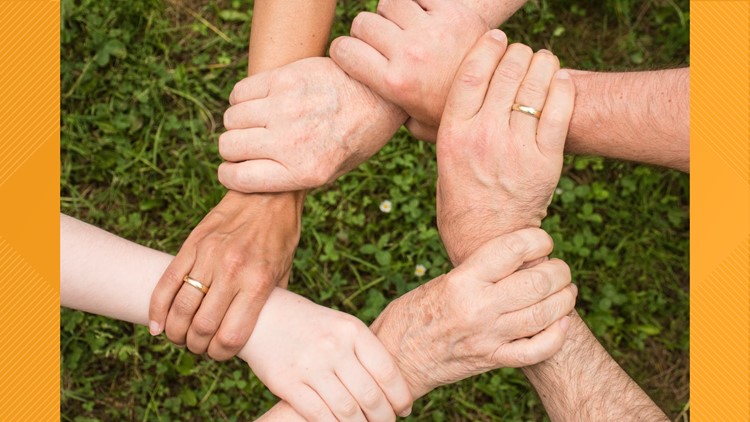TOLEDO, Ohio — New research from The University of Toledo Department of Psychology shows something unexpected - those who feel more personally affected by the coronavirus pandemic feel less lonely.
The study was conducted to see the affects of social distancing measures and COVID-19 on Americans' mental health.
An unsurprising aspect of the study shows that being under a stay-at-home order was broadly associated with increased health anxiety, financial worry and loneliness.
Even so, people who said their lives had been significantly uprooted by COVID-19 reported feeling less lonely relative to those who saw the pandemic's disruption on their daily lies as more minor, according to the study.
"It looks like it's possible that those who feel COVID-19 has had a greater impact on their daily lives might be trying to connect more with people and access social support," said Dr. Matthew Tull, UT psychology professor and lead author on the study. "This could have some positive mental health aspects down the road."
Dr. Tull said the studies are consistent with suggestions that the shared experience of COVID-19 could increase closeness and social cohesion, similar to what has been seen following other mass tragedies.
The study, published in the journal Psychiatry Research, surveyed 500 people between March 27 and April 5, roughly the peak of the stay-at-home orders.
The age of those surveyed ranged from 20 to 74 and represented 45 states with income broken down into three brackets.
Researchers say findings were generally uniform across the board, although people in lower income brackets reported more anxiety, financial worry and loneliness.
Feeling anxiety during this time is natural, and researchers say anxiety can be a motivating factor that leads to helpful behaviors, such as taking seriously the recommendations of public health officials. But anxiety can also lead to problematic behaviors, such as substance abuse.
UT researchers are currently gathering data for the second phase of their study, which will look at long-term affects of the pandemic and how people are coping over time.
"Our hope is this work might help us identify over time individuals who are particularly in need of services and how we can best connect with them," said Dr. Tull.



